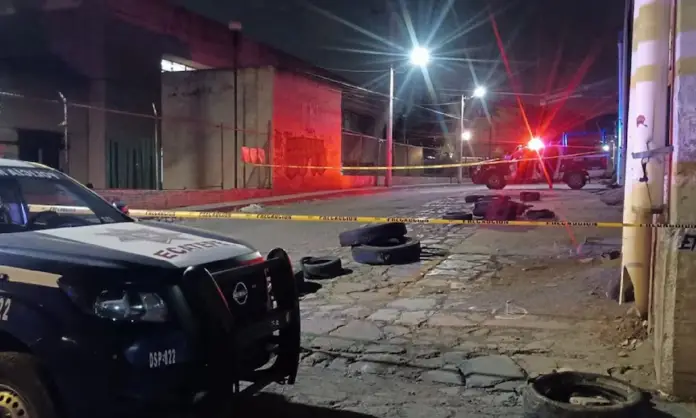Fear of crime and the prevalence of insecurity escalated again in Mexico during the third quarter of 2025. According to the National Urban Public Security Survey (ENSU), prepared by the National Institute of Statistics and Geography (INEGI), 63% of the adult population in urban areas considers living in their city unsafe.
This figure represents an increase from the 58.6% recorded in September 2024, and—although it represents a slight decrease compared to the previous quarter (63.2%)—confirms that the perception of insecurity remains a dominant concern in the country.
The ENSU, which quarterly measures citizen perceptions of security in 91 Mexican cities, reveals that more than six out of ten adults live in constant fear. This level has not been observed since the end of 2023, suggesting a decline in citizen confidence despite government efforts to reduce crime rates.
The report identifies Culiacán, Sinaloa, as the city with the highest perception of insecurity, with an alarming 88.3% of its residents feeling at risk. This figure is part of a context of criminal reorganization following the arrest of Ismael “Mayo” Zambada more than a year ago, as well as the development of the so-called “narco-war” between the Los Chapitos and La Mayiza factions in the region.
Following this are:
Irapuato, Guanajuato: 88.2% perception of insecurity
Chilpancingo, Guerrero: 86.3%
Ecatepec de Morelos, State of Mexico: 84.4%
Cuernavaca, Morelos: 84.2%
These cities share common characteristics: the presence of criminal groups, a high incidence of armed violence, and a weak perception of institutional effectiveness. In contrast, some cities show low levels of perceived insecurity, highlighting regional disparities.
The safest cities according to the ENSU are:
San Pedro Garza García, Nuevo León: 8.9%
Piedras Negras, Coahuila: 15%
Benito Juárez, Mexico City: 15.6%
Los Mochis, Sinaloa: 19.2%
San Nicolás de los Garza, Nuevo León: 22.4%
The city of Culiacán follows.
Public spaces: the most feared by citizens
Insecurity is not limited to the domestic environment. The ENSU reveals that public spaces are perceived as highly dangerous, affecting mobility, access to services, and social life.
71.7% of Mexicans feel unsafe at ATMs in public spaces
64.9% on public transportation
64.4% on the streets
57.1% on highways
This climate of insecurity has changed daily habits:
40.6% stopped carrying valuables
36.9% restrict minors from going out
35% avoid walking at night near their homes
22.4% have reduced visits to family or friends
Although some of these percentages have decreased slightly compared to previous quarters, the impact on quality of life remains considerable. Fear influences daily decisions, from transportation use to social interaction.
Fewer homicides, but more fear? These are the data
One of the most striking contrasts in the report is between public perceptions and official crime figures. According to the data, the daily average of homicides in Mexico dropped to 59.5 in September 2025, compared to 86.9 recorded in the same month in 2024. This 32% reduction coincides with Claudia Sheinbaum’s first year in office.
During that period, authorities reported:
More than 34,000 arrests for high-impact crimes
Seizure of more than 283 tons of drugs
However, these advances have not translated into a greater sense of security. The persistence of fear suggests that public perceptions are driven not only by statistics, but also by personal experiences, the presence of criminal groups, and trust in institutions.

The ENSU also measures trust in the institutions responsible for security. The results show a clear preference for the armed forces, which enjoy greater legitimacy among the population.
Navy: 86.7% perceived effectiveness
Mexican Army: 83%
Mexican Air Force: 83.2%
In contrast, civilian corporations receive lower ratings:
State Police: 52.7%
Municipal Police: 46.8%
Furthermore, only 30.3% of respondents consider local government effective in solving major urban problems. Among the most frequently mentioned are:
Potholes: 84.9%
Water leaks: 59.6%
Clogs in drains: 60%
These data reflect a structural distrust of local authorities, which directly impacts perceptions of security.
Source: infobae




